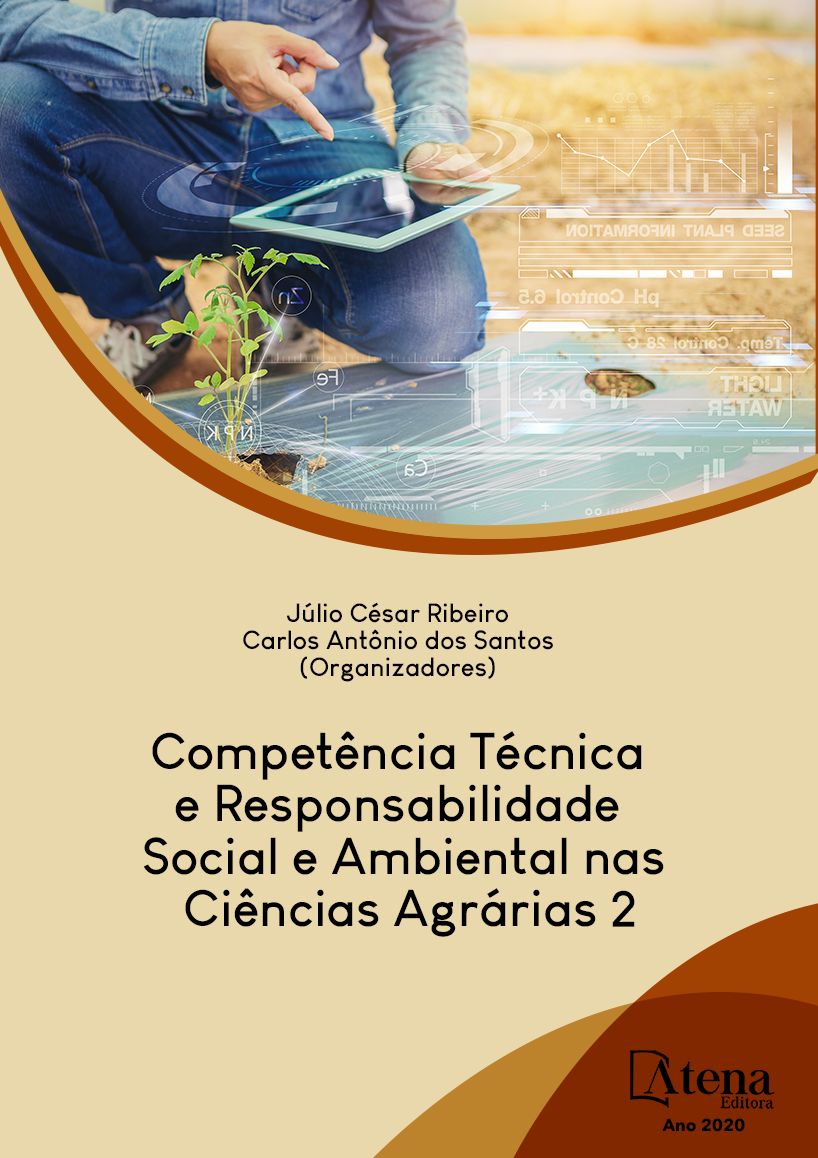
INFLUÊNCIA DA ADUBAÇÃO ORGANOMINERAL NOS PARÂMETROS DO EXTRATO DA CANA NUM SOLO ARENOSO
O Brasil ocupa o primeiro lugar na
produção mundial de cana-de-açúcar destinada
a bioenergia, açúcar e alimentação animal e
humana. Estudos sobre o uso de biossólidos
implica em economia, sustentabilidade e
ganhos ambientais. Este estudo avaliouas
características tecnológicas do extratoda canade-
açúcar adubada com fertilizante mineral e
organomineral de lodo de esgoto associados à
bioestimulante. O experimento foi implantado
em área de expansão de canavial, na Usina
Vale do Tijuco,situado no Rio do Peixe, distrito
de Prata - MG. O delineamento experimental foi
em blocos casualizados com fatorial 5 x 2 +1
sendo cinco doses,com e sem bioestimulante
mais um adicional (adubação mineral) em
quatro repetições.Os tratamentos foram
emfunção da recomendação da adubação de
plantio e cobertura, consistindo de: 100 % com
fonte mineral;0; 60; 80; 100 e 120 % (com e
sem bioestimulante) da fonte organomineral de
lodo de esgoto. Foi utilizado o bioestimulante
enraizador Stimulate® via inoculação (0,75 L ha-
1). Avaliou-se o açúcar total recuperável (ATR)a
quantidade de etanol produzida portonelada de
cana e a produtividade de colmos. O ATR e o
rendimento deetanol não são influenciados pela
fonte de fertilizante. O bioestimulante promove
aumento da produtividade.
INFLUÊNCIA DA ADUBAÇÃO ORGANOMINERAL NOS PARÂMETROS DO EXTRATO DA CANA NUM SOLO ARENOSO
-
DOI: 10.22533/at.ed.42420220123
-
Palavras-chave: Lodo de esgoto; Saccharum spp; Stimulate®
-
Keywords: Keywords
-
Abstract:
Brazil occupies the first place in the world production of sugar cane for
bioenergy, sugar and animal feed and human food. Studies on the use of biosolid
simplies in economics, sustainability and environmental gains. This study evaluated the
technological characteristic sof the extractof sugar cane fertilized with mineral fertilizer
and organomineral of sewag esludge associated with the stimulator. The experiment
was deployed in the expansion area, at Mill Valley do Tijuco, located in Rio do Peixe,
district of Prata City – Brazil. The experimental design was randomized blocks with
a factorial scheme 5 x 2 + 1 with five doses, with and with out a biostimulant plus an
additional (mineral fertilization) in four replications. The treatments were depending on
the recommendation of the fertilization of planting and coverage, consisting of: 100 %
with mineral source; 0; 60; 80; 100 and 120 % (with and without a biostimulant) from the
source organomineral of sewage sludge. It was used the BIOSTIMULANT enraizador
Stimulate® via inoculation (0.75 L ha-1). It wase valuated the total recoverable sugar
(ATR) the amount of ethanol produced per tonne of cane and the productivity of
stems. The ATR and theethanolyield are not influenced by the source of fertilizer. The
biostimulant promotesan increase in productivity.
-
Número de páginas: 6
- Jose Geraldo Mageste da Silva
- Matheus Henrique Medeiros
- Emmerson Rodrigues de Moraes
- Reginaldo de Camargo
- Jose Luiz Rodrigues Torres
- Regina Maria Quintão Lana


